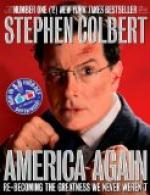Finding the progress slow with only one man at work, Cheon suggested the Maluka might lend a hand in his spare time (station books being considered recreation); and when Dan came in with a mob of cattle from the Reach country, he hinted that cattle could wait, and that Dan could employ his time better.
But Dan also was out of patience with circumstances, and growled out that “they’d waited quite long enough as it was,” for the work of the station was at a deadlock for want of stores. They had been sadly taxed by the needs of travellers, and we were down to our last half-bag of flour and sugar, and a terrifyingly small quantity of tea; soap, jams, fruits, kerosene, and all such had long been things of the past. The only food we had in quantities was meat, vegetables, and milk. Where we would have been without Cheon no one can tell.
To crown all, we had just heard that the Dandy was delayed in a bog with a broken shaft, but he eventually arrived in time to save the situation, but not before we were quite out of tea. He had little to complain of in the way of welcome when his great piled-up waggon lumbered into the homestead avenue and drew up in front of the store.
The horse teams were close behind, the Dandy said, but Mac was “having a gay time” in the sandy country, and sent in a message to remind the missus that she was still in the Land of Wait-awhile. The reminder was quite unnecessary.
There was also a message from Mine Host. “I’m sending a few cuttings for the missus,” it read. Cuttings he called them, but the back of the waggon looked like a nurseryman’s van; for all a-growing and a-blowing and waiting to be planted out, stood a row of flowering, well-grown plants in tins: crimson hibiscus, creepers, oleanders, and all sorts. A man is best known by his actions, and Mine Host best understood by his kindly thoughtfulness.
The store was soon full to overflowing, and so was our one room, for everything ordered for the house had arrived—rolls of calico heavy and unbleached, mosquito netting, blue matting for the floors, washstand ware, cups and saucers, and dozens of smaller necessities piled in every corner of the room.
“There won’t be many idle hands round these parts for a while,” a traveller said, looking round the congested room, and he was right, for having no sewing machine, a gigantic hand-sewing contract was to be faced. The ceilings of both rooms were to be calico, and a dozen or so of seams were to be oversewn for that, the strips of matting were to be joined together and bound into squares, and after that a herculean task undertaken: the making of a huge mosquito-netted dining-room, large enough to enclose the table and chairs, so as to ensure our meals in comfort—for the flies, like the poor, were to be with us always.
This net was to be nearly ten feet square and twelve high, with a calico roof of its own drawn taut to the ceiling of the room, and walls of mosquito netting, weighted at the foot with a deep fold of calico, and falling from ceiling to floor, with a wide double overlapping curtain for a doorway. Imagine an immense four-poster bed-net, ten by ten by twelve, swung taut within a larger room, and a fair idea of the dining-net will have been formed. A room within a room, and within the inner room we hoped to find a paradise at mealtime in comparison to the purgatory of the last few months.




